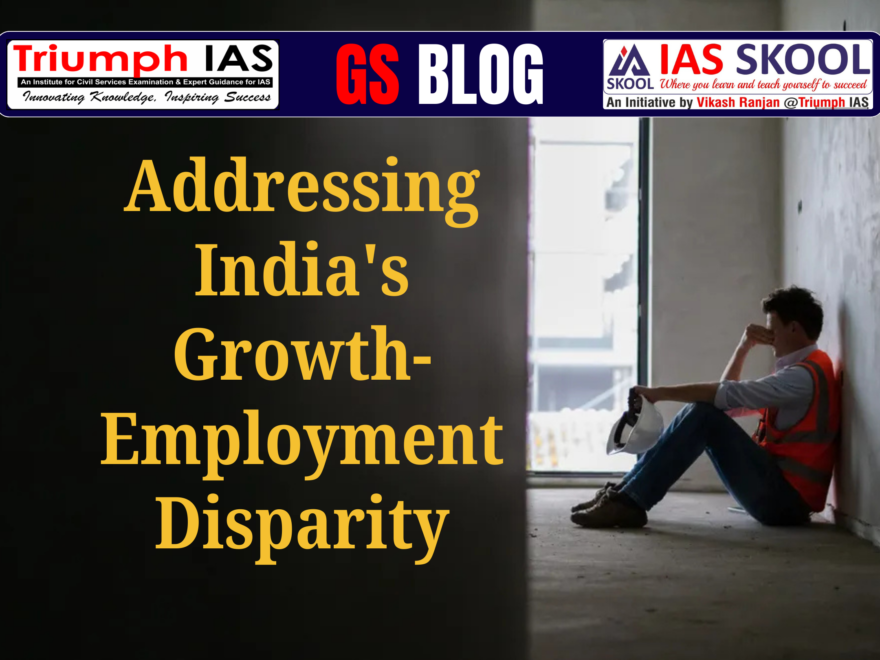
|
When considering the array of 51 optional subjects for the UPSC Mains Examination, Sociology consistently stands out as a top choice. Its inherent appeal lies in its accessibility and intriguing exploration of humanity and society, catering even to students from Science and Commerce backgrounds. With a well-defined UPSC sociology syllabus comprising only 13 units, Sociology can be comprehensively covered within 4 to 5 Month Comprehensive “Foundation to Finale” Classroom Programme, Many of Our Sociology Foundation Course Students have Cleared CSE 2023- Kajal Singh, First Attempt (Age 22) Mahi Sharma, First Mains (Age 23), Anand Sharma First Mains and Many Others. Previously also Many students like IAS Pradeep Singh, IAS Ashish, IPS Bindu Madhav, IPS Aparna Gautam, IPS Shahnaz Illyas got Success in CSE in First Attempt with Sociology Optional.
IAS Medha Anand, has get 310 marks in her optional subject sociology, 156 in paper – 1 & 154 marks in Paper-2 in CSE 2023. Notably, Sociology for UPSC has garnered a reputation as one of the Highest scoring optional subjects in the UPSC Main Examination, with numerous candidates consistently achieving 300+. Its popularity is evident in the fact that a significant proportion of top 100 rankers opt for Sociology as their optional subject, showcasing its high scoring potential, particularly for those not from sociology backgrounds. Moreover, relevance of Sociology Optional Syllabus for UPSC extends beyond the examination hall, enriching understanding across various aspects of life, from social and economic to political and cultural domains. In recent times, Sociology Optional has gained traction, aligning with the evolving trend of the UPSC Mains towards conceptual analysis. Unlike other optional subjects with unpredictable question patterns, Sociology offers stability and predictability, making it an attractive choice. This adaptability, coupled with its concise syllabus and relevance to both academic and social spheres, positions Sociology as the ideal optional subject for engineers as well as optional subject for commerce graduates and optional subject for science graduates seeking success in the Civil Services Examination. For those pursuing Sociology as an optional subject, accessing comprehensive Sociology optional notes and few good Sociology optional books, and previous years’ UPSC sociology optional question papers is pivotal for thorough preparation. Additionally, for aspirants seeking guidance, renowned educator Vikash Ranjan Sir at TRIUMPH IAS coaching institutes in Delhi, offer valuable support and resources. Vikash Ranjan Sir is the Best Sociology Teacher and Triumph IAS is the best sociology coaching in Delhi. If you are away from Old Rajendra Nagar, Delhi, you can still complete Journey of UPSC civil service preparation through online Sociology class The scientific nature of Sociology, coupled with its direct applicability to daily social interactions, renders it a subject that can be comprehended without extensive reference materials, distinguishing it from other optional subjects requiring extensive reading and research.
|
Addressing India’s Growth-Employment Disparity
Relevant for Civil Services Examination
GS Paper-3
(Employment)

Addressing India’s Growth-Employment Disparity
India’s rapid economic growth highlights a concerning paradox—a significant shortfall in creating quality jobs for its workforce. This disconnect threatens equitable development and social cohesion.
Key Issues:
- Low Workforce Participation:
- Approximately 40% of working-age individuals remain out of the labor force, reflecting an underutilization of human potential.
- Women’s workforce participation is predominantly confined to low-productivity and informal sectors, limiting economic inclusion.
- Prevalence of Informal Employment:
- Informal work dominates the labor market, depriving a majority of workers of essential social security and stability.
- Inadequate Skill Development:
- Access to formal training and vocational education remains limited, creating a skill gap that hampers employability.
- Youth Disengagement:
- Despite India’s reputation as a technology hub, nearly one-third of its youth are neither engaged in education nor employment.
Implications:
Bridging the gap between economic growth and equitable employment is essential to achieving sustainable development, fostering social justice, and ensuring inclusive pro
Current Status of Employment and Job Creation in India
Labour Force Participation Rate (LFPR):
- The overall labour force participation rate for individuals aged 15 years and above has improved significantly, rising from 49.8% in 2017-18 to 60.1% in 2023-24.
- However, the share of women in salaried employment has declined, while self-employment has surged from 51.9% in 2017-18 to 67.4% in 2023-24.
- Many women are engaged as unpaid helpers in household enterprises or as own-account workers, reflecting limited availability of quality job opportunities.
Informal Employment:
- A large proportion of the workforce remains employed in informal enterprises (proprietary and partnerships).
- In 2023-24, 73.2% of workers were engaged in informal firms, showing a marginal decline from 74.3% in 2022-23 but still higher than 68.2% in 2017-18.
Sectoral Distribution of Employment:
- The share of workers in agriculture has risen from 44.1% in 2017-18 to 46.1% in 2023-24, reversing a long-term trend of declining dependence on agriculture.
- Employment in manufacturing has stagnated, remaining at 11.4% in 2023-24, a slight decline compared to 11.6% in 2021-22.
Unemployment Trends:
- The overall unemployment rate for individuals aged 15 years and above has dropped from 6% in 2017-18 to 3.2% in 2023-24.
- Youth unemployment has also fallen from 17.8% in 2017-18 to 10.2% in 2023-24, yet it remains a concern.
- Unemployment is disproportionately higher among the educated workforce, with individuals holding secondary or higher education qualifications facing significant challenges in securing jobs.

Challenges in India’s Economic Growth and Employment Generation
Structural Issues in Job Creation
- Despite achieving a robust GDP growth rate of 6.5–7% in 2024-25, job creation has not kept pace with economic expansion.
- The worker-to-population ratio has declined from 38.6% in 2011-12 to 37.3% in 2022-23, indicating that economic growth is failing to generate sufficient employment for the expanding workforce.
- Increasing adoption of capital-intensive and labor-saving production methods, as highlighted in the India Employment Report 2024, has further complicated efforts to create jobs.
Skills Mismatch Crisis
- India’s education system emphasizes theoretical knowledge over practical skills, leaving graduates ill-prepared for industry needs.
- Many industries face simultaneous challenges of high unemployment and unfilled positions due to this mismatch.
- While over 60% of engineering graduates are deemed employable, only 45% meet industry standards, necessitating significant retraining efforts.
Gender Disparities in Employment
- India’s labor market exhibits stark gender imbalances, with the male Labour Force Participation Rate (LFPR) at 78.3%, compared to the female LFPR of just 41.3%.
- Systemic barriers limit women’s participation in the workforce, contributing to economic underutilization of half the population.
- Addressing these disparities is critical for ensuring inclusive economic growth and enhancing job quality across all demographics.
Policy Focus on Corporate Incentives Over MSMEs
- Government policies often favor large corporations through subsidies and incentives, sidelining Micro, Small, and Medium Enterprises (MSMEs) that are pivotal for job creation.
- Efforts to attract foreign direct investment have not significantly contributed to local employment generation.
- Initiatives like Make in India have disproportionately benefited large firms, while MSMEs struggle with challenges such as access to finance, market linkages, technology adoption, and digitalization, as noted in the Economic Survey 2023-24.
Digital Disruption and Traditional Job Displacement
- The rapid digitalization of India’s economy is disrupting traditional jobs faster than new ones are being created.
- While digital transformation generates high-skilled opportunities, it also eliminates middle-skilled roles that historically provided stable employment.
- The gig economy, despite offering flexibility, has led to precarious jobs without adequate social protection. For example, 77% of gig workers in 2023 earned less than ₹2.5 lakh annually.
Policy Implementation Gaps
- Ambitious employment policies face poor execution due to inadequate coordination between the central and state governments.
- The Labor Codes, though comprehensive, remain largely unimplemented due to bureaucratic hurdles and delays at the state level.
- A significant portion of the informal workforce remains outside the purview of these codes, limiting their effectiveness.
Regional Economic Imbalances
- Economic growth and job opportunities are heavily concentrated in a few urban hubs, creating regional disparities.
- The underdevelopment of tier-2 and tier-3 cities as growth centers has triggered unsustainable migration patterns.
- State-level inequalities in infrastructure and business environments further perpetuate these imbalances, hindering equitable employment distribution across the country.
Measures to Align Economic Growth with Quality Job Creation
Transforming the MSME Ecosystem
- Develop integrated digital platforms combining GST, banking, and compliance systems to streamline operations under a one-stop-shop model.
- Establish sector-specific industrial clusters equipped with shared infrastructure, testing facilities, and technology centers in key industrial districts.
- Provide targeted financial support through specialized MSME-focused banks and fintech solutions with simplified credit assessment processes.
- Introduce single-window clearance systems at district levels with time-bound approvals and digital tracking mechanisms.
- Facilitate mentorship networks linking large corporations with MSMEs to enable technology transfer and market access.
Integrating Skills and Education
- Mandate industry internships during the final year of all professional courses, supported by standardized assessment frameworks.
- Establish district-level, industry-led skill councils to ensure curriculum relevance and incorporate continuous feedback.
- Introduce digital skills, coding, and vocational training at the secondary school level with project-based learning approaches.
- Implement real-time monitoring systems for training outcomes through industry partnerships and placement tracking mechanisms.
Local Economic Development Initiatives
- Empower city governments with financial and administrative autonomy to design and implement local economic development plans.
- Develop specialized economic corridors connecting tier-2 and tier-3 cities with integrated logistics and industrial infrastructure.
- Launch Urban Employment Guarantee Schemes focused on municipal services, green infrastructure, and digital services.
- Establish City Skill Development Centers aligned with local industry requirements and emerging growth sectors.
Promoting Advanced Manufacturing
- Create integrated manufacturing zones catering to both labour-intensive and capital-intensive sectors for balanced economic growth.
- Develop supplier development programs connecting large manufacturers with local MSMEs for technology upgrades and quality enhancement.
- Introduce specialized workforce training programs in Industry 4.0 technologies while maintaining traditional labor-intensive production lines.
- Offer incentives to manufacturers adhering to minimum employment-to-investment ratios in priority sectors.
Modernizing Social Security
- Implement portable universal social security systems through unified digital platforms integrating all welfare schemes.
- Design a comprehensive gig worker protection framework including minimum wage guarantees and health coverage.
- Launch special schemes for informal workers, incorporating government co-contributions and easy enrolment processes.
- Develop micro-insurance products tailored for vulnerable sectors with simplified claims processes.
Boosting Rural Enterprise Development
- Transform Gram Panchayats into micro-enterprise hubs by simplifying regulations and providing basic infrastructure support.
- Establish Rural Business Hubs that connect Farmer Producer Organizations (FPOs) with food processing and retail chains via digital platforms.
- Create Rural Technology Centers focusing on innovations in agri-tech, renewable energy, and rural services.
- Develop specialized credit products for rural entrepreneurs through Self-Help Group (SHG)-Bank linkages backed by credit guarantees.
Transitioning to a Green Economy
- Set up green technology training centers specializing in renewable energy, sustainable agriculture, and eco-friendly manufacturing.
- Provide specialized funding mechanisms for green enterprises with relaxed collateral requirements and extended repayment periods.
- Establish green industrial parks equipped with shared environmental infrastructure and waste management systems.
- Launch skill development programs specifically designed for green jobs, including solar panel installation and electric vehicle maintenance.
Modernizing the Service Sector
- Develop specialized training programs for high-growth service sectors like healthcare, tourism, and education.
- Create Service Sector Excellence Centres to promote global standards and best practices in emerging industries.
- Introduce tailored courses for niche sectors such as wellness tourism to boost employment in emerging fields.
- Formulate service sector export promotion strategies leveraging India’s competitive advantages in the global market.
India’s employment challenges demand a holistic and strategic approach. Tackling structural inefficiencies, prioritizing skill development, fostering inclusive economic growth, and enhancing social security systems are essential steps. By aligning economic growth with quality job creation, India can achieve equitable development and establish itself as a global leader in human capital advancement.
The End of the Blog: Addressing India’s Growth-Employment Disparity

|
|
Frequently Asked Questions by
UPSC Sociology Optional Students
How to prepare for the Sociology Optional without coaching?
Understand the syllabus thoroughly: Familiarize yourself with the entire syllabus for both Paper I and Paper II. Download the official UPSC syllabus and use it as your roadmap. You can attend Sociology Orientation Lectures by Vikash Ranjan sir on YouTube
Build a strong foundation: Start with introductory textbooks and NCERT books to grasp core sociological concepts. You can start with Introduction to Sociology books
Choose reliable study materials: Select high-quality textbooks, reference books, and online resources recommended by experts. You can opt for Vikash Ranjan Sir Notes too.
Develop a study schedule: Create a realistic and consistent study schedule that allocates dedicated time for each topic. Stick to it and track your progress.
Take notes effectively: Don’t just passively read. Summarize key points, create mind maps, or use other note-taking techniques to aid understanding and revision.
Practice answer writing: Regularly write answers to past year question papers and model questions. Focus on clarity, structure, and critical thinking. Evaluate your answers for improvement.
Seek guidance: You can take free Mentorship on Sociology Optional preparation by Vikash Ranjan sir. Connect with Vikash Ranjan sir (7303615329) to share strategies, ask questions, and stay motivated.
Can I prepare for Sociology Optional without coaching?
Absolutely! Many aspirants successfully clear the exam through self-study. However coaching can provide structure and guidance, for time bound preparation.
What are the benefits of preparing without coaching?
Cost-effective: Coaching can be expensive, and self-study allows you to manage your resources efficiently.
Flexibility: You can tailor your study plan to your individual needs and pace.
Independence: You develop critical thinking and research skills, valuable assets for your career.
What are the challenges of preparing without coaching?
Discipline and motivation: You need self-discipline to stay on track and motivated without external guidance. Coaching and Teacher keeps you motivated.
Access to resources: You may need to do extra research to find quality study materials and answer-writing practice opportunities. Teacher help you on this respect.
Doubt clearing: You might lack immediate access to someone to address your doubts and questions. Teacher like Vikash Ranjan sir is accessible to his students 24×7 Mo- 7303615329
What additional resources can help me?
Vikash Ranjan Sir’s YouTube channel and website: Offers free Sociology lectures, study materials, and guidance.
Triumph IAS website: Provides past year question papers, model answers, and other helpful resources.
Public libraries and online databases: Utilize these resources for access to relevant books, journals, and academic articles.
Follow us :
 https://www.instagram.com/triumphias
https://www.instagram.com/triumphias
 www.triumphias.com
www.triumphias.com
 https://www.youtube.com/c/TriumphIAS
https://www.youtube.com/c/TriumphIAS
 https://t.me/VikashRanjanSociology
https://t.me/VikashRanjanSociology


















